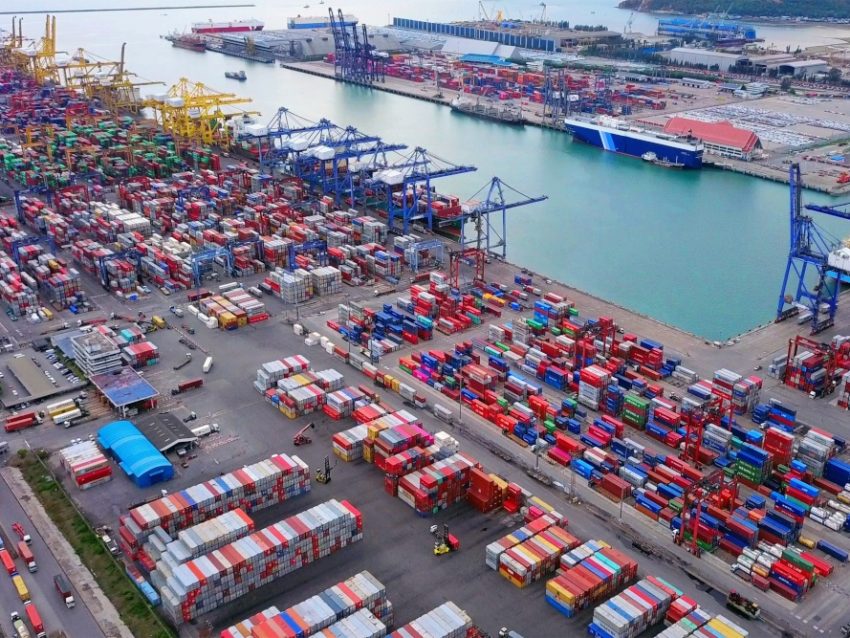
With the development of the global market and the intensification of international economic exchange, it is gaining in importance intermodal transport. What is intermodal transport? And why is it a solution that is becoming more and more popular among large and small entrepreneurs?
Intermodal transport - definition
Intermodal transport, often interchangeably called multimodal transport, is a cargo transportation system in which they are moved by at least two different means of transport, such as trucks, trains, ships or planes. An important feature intermodal transport is to use one intermodal transport unit throughout the entire process - for example, a standardized container or a swap body. It is worth emphasizing that intermodal transport, even though it is transported by various means of transport, is always supervised by one contractor - usually an experienced forwarder.
An example of intermodal transport is the transport of cargo imported from China to Poland. In this process, the cargo in the container is usually transported by truck from the shipper/manufacturer to a transhipment terminal in China. There, the container is reloaded onto a train, ship or plane, and then in the destination country it is reloaded onto a truck and delivered to the recipient of the shipment.
What are the advantages of intermodal transport?
Popularity intermodal transport constantly increasing. This is because it offers many benefits to entrepreneurs, especially those who import goods from distant countries. Above all intermodal transport is a convenient solution that allows you to optimize transport costs. The use of different means of transport in one supply chain allows you to reduce expenses on transporting goods. Lower costs may result from reduced fuel costs, route fees or reduced storage fees.
Intermodal system it also means greater flexibility and adaptation to needs. By using different means of transport, time and space constraints can be avoided. At the same time, this form of transport increases the availability of transport options offered by the industry. You can use these forms that will provide your company with better adaptation to current needs.
Intermodal transport it also ensures faster deliveries. It is worth remembering that faster deliveries mean more smooth resource management. Skillfully combining means of transport in one supply chain allows you to significantly speed up the delivery of the product and introduce it to the market in a shorter time. As a result, you turn over cash faster while minimizing the costs associated with storing large batches of goods.
The undoubted advantage intermodal transport is transport safety. On the one hand, the cargo is transported in intermodal transport units i.e. steel containers resistant to mechanical damage and the influence of external conditions. On the other hand, used in intermodal transport means of transport usually offer the ability to constantly monitor the progress of transport, so you are fully aware of where your shipment is at any given time. Moreover, some means of transport intended for long-distance transport provide optimal conditions for storing imported goods. An example are refrigerated containers, which guarantee maintaining a low temperature to keep food products in appropriate conditions.
Intermodal transport it is also an excellent solution for reducing the carbon footprint generated by cargo transportation. The use of low-emission means of transport, for example railways, will contribute to reducing greenhouse gas emissions. It should be emphasized that there is more and more talk about the need to introduce carbon footprint limits, especially for goods imported from distant parts of the world. Exceeding the limit may result in additional fees for importers.
Without a doubt, implementation intermodal transport in the company's operations will result in an increase in its competitiveness in many areas, including flexibility and delivery time, as well as its price and costs generated towards the natural environment.
However, it is worth remembering that the processes implemented as part of intermodal transport are relatively complicated and require experience, knowledge and skills allowing for efficient connection of all transport elements. Therefore, it is best to use the services of forwarders specializing in fulfillment intermodal transport in Polandwho will take over the organization of the entire process, including customs and tax services.
